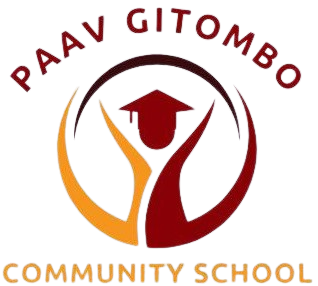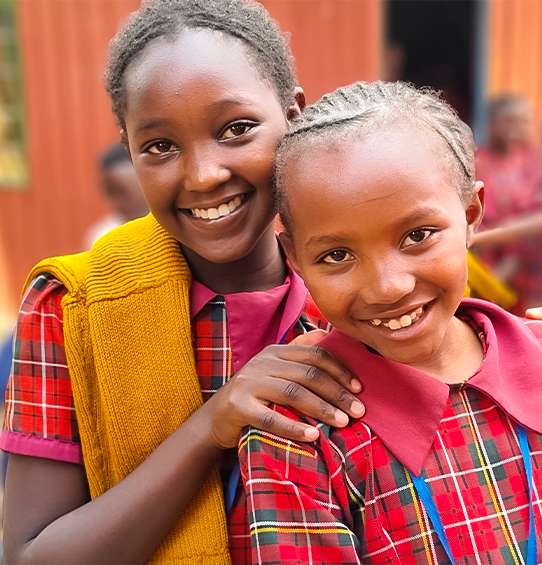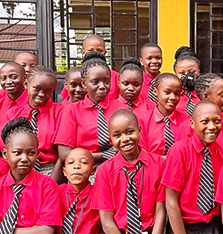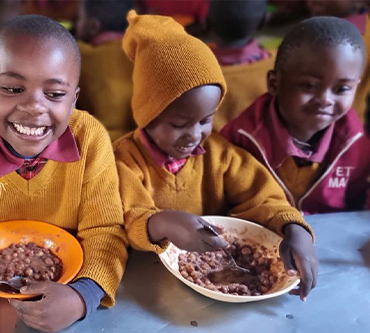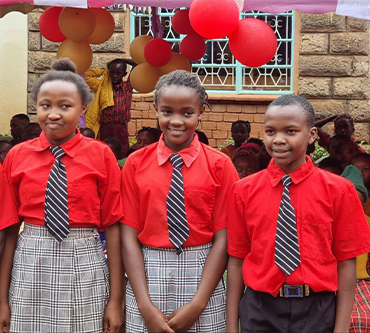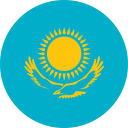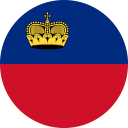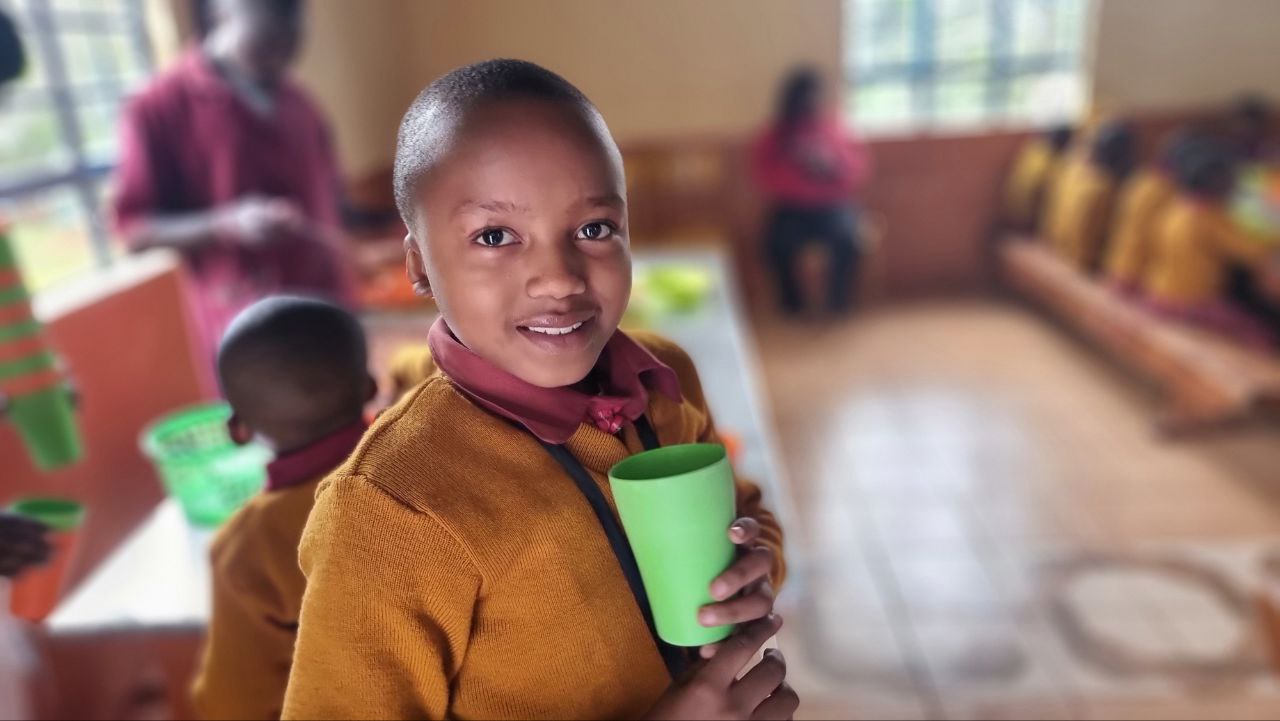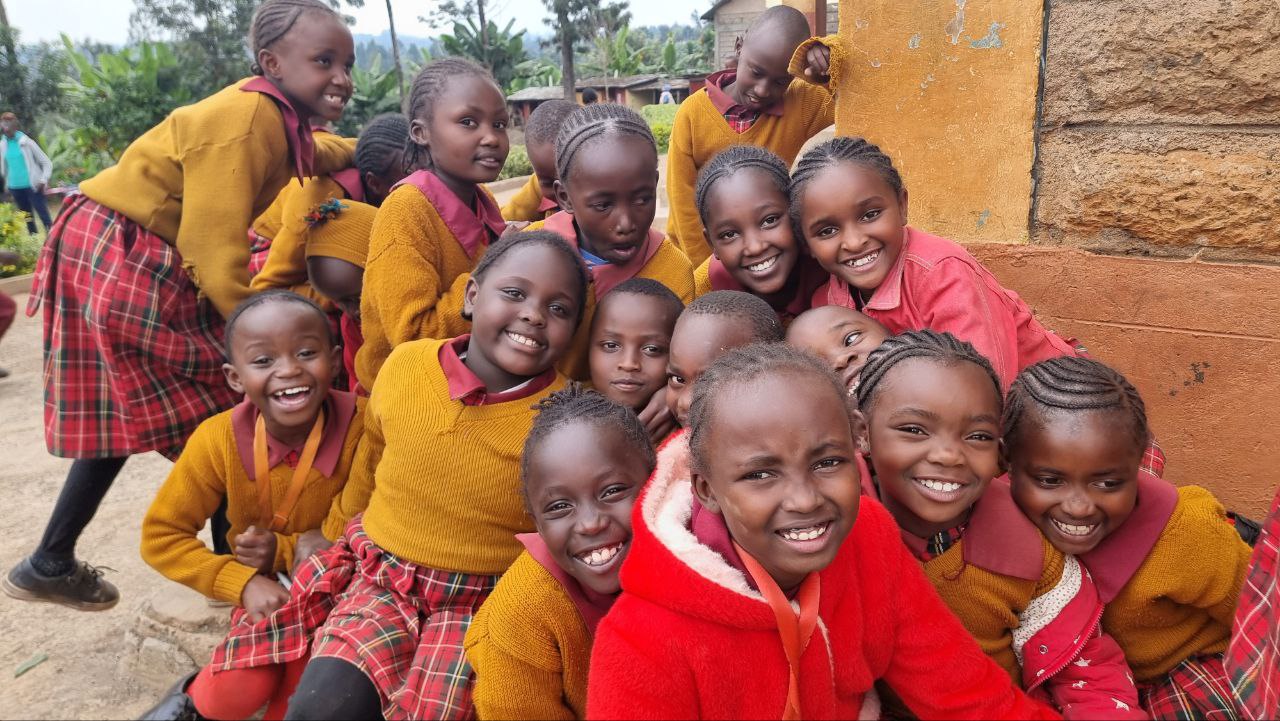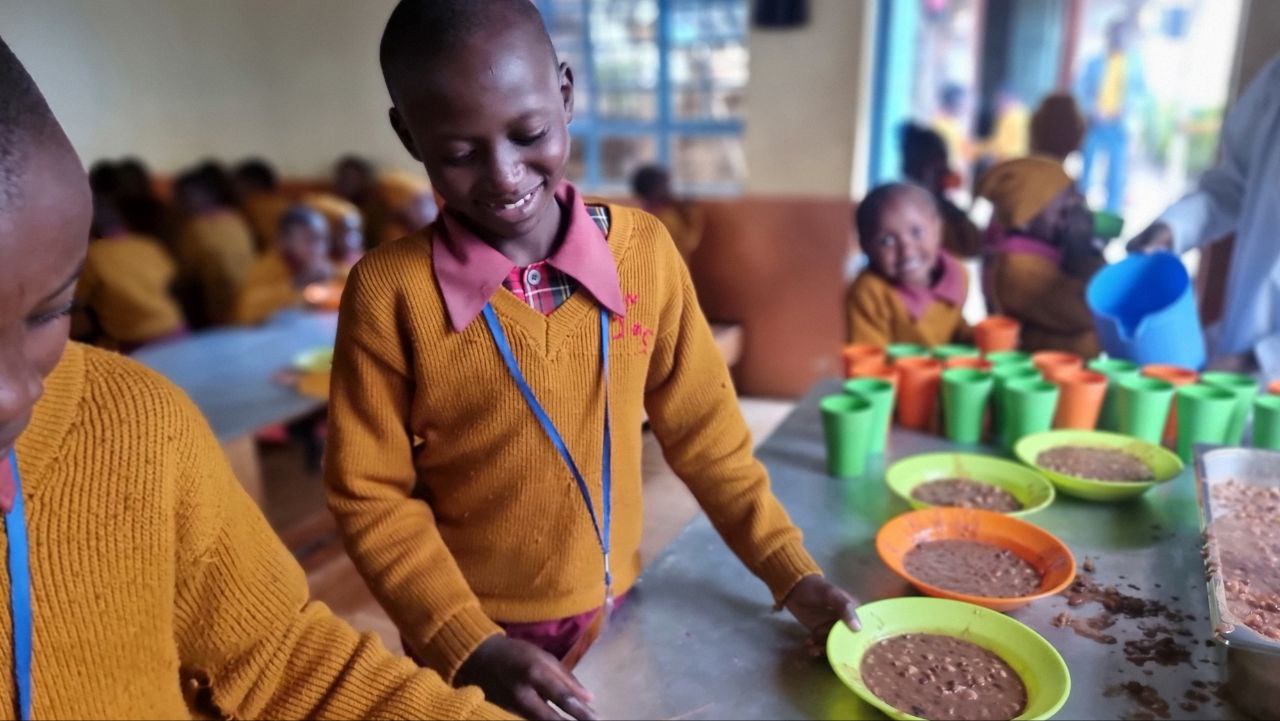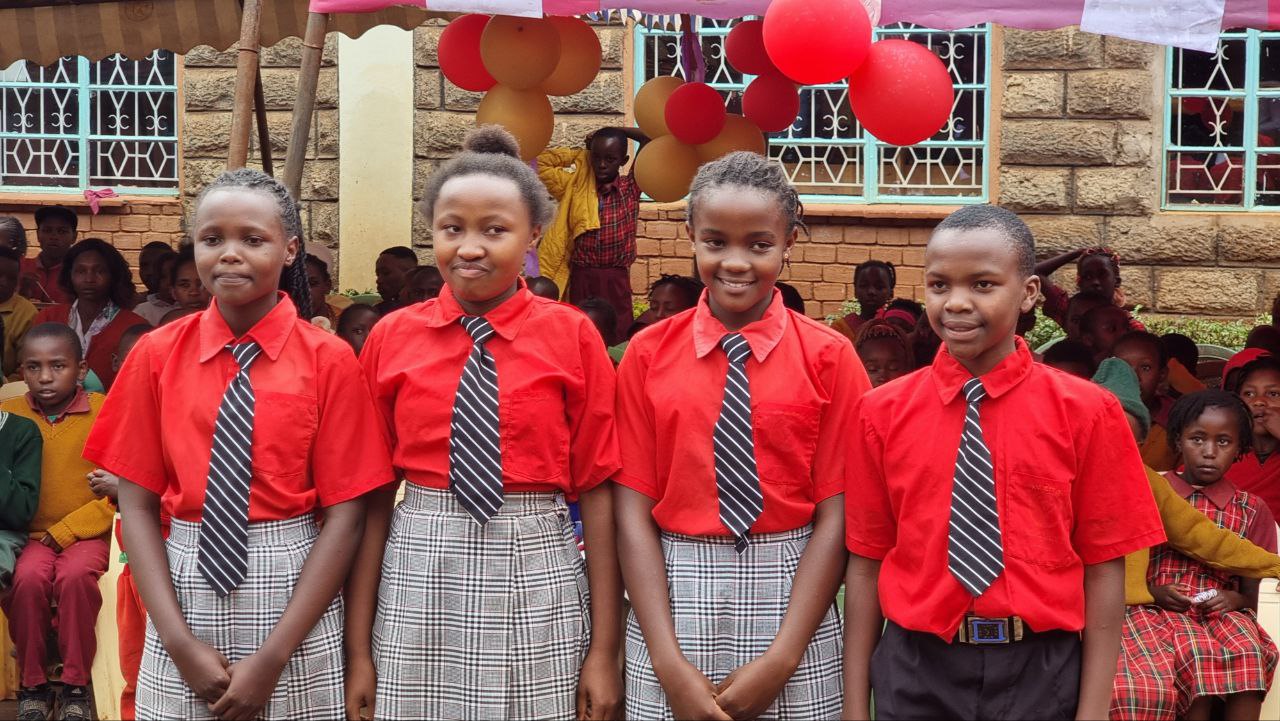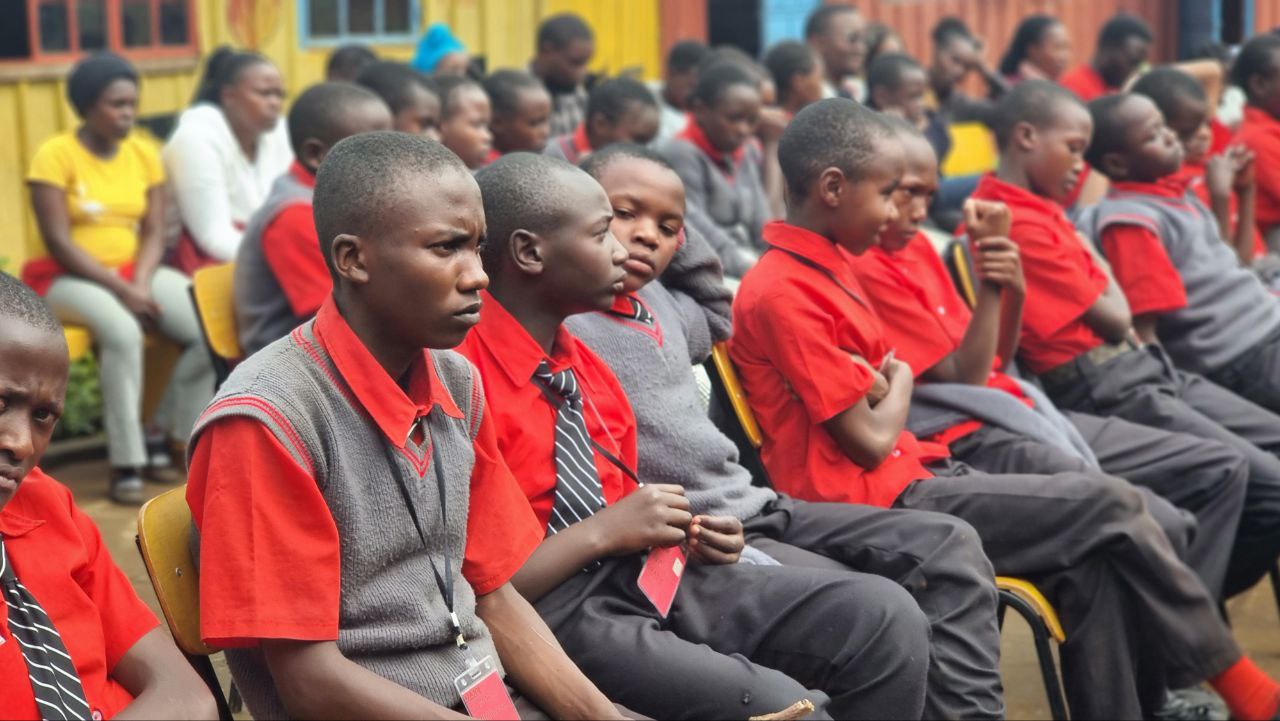About Us
- PAAV Gitombo
- About
Who We Are
PAAV-Gitombo is a non-profit Christian school whose motto is “more than academics.” PAAV has brought high-quality Christ-centered education closer to the children of Gitombo while at the same time creating employment opportunities for many parents in the community.
The school was established in 2014 with 3 children and just one teacher, and has grown to have more than 220 children and 20 teachers in 2025. We have been offering education based on Kenya’s CBC curriculum across three levels
• ECDE
• Primary School
• Junior School
The school was officially registered in Kenya as PAAV-Gitombo Community Primary and Junior School in 2022.
Through generous donations, we endeavor to provide the necessary facilities to support holistic education for our children. However, we continue to grow, and this puts a strain on existing facilities.
- We believe in raising not just scholars, but godly leaders.
- At PAAV, every child carries a story—and every story matters.
Students
In Operations
Teachers
Initiatives
-
K
Poor Educate
-
M+
Donate now
-
K
Clients Help
-
K+
Team Support
Extracurricular Activities
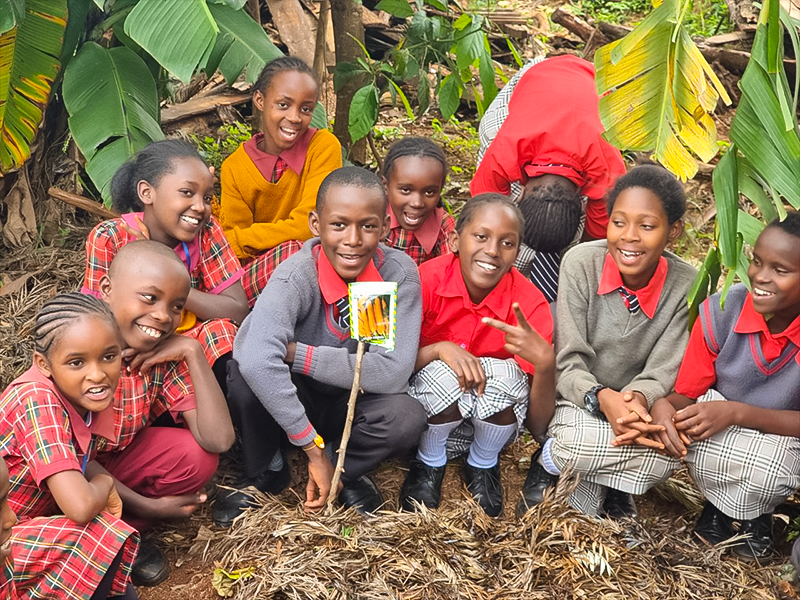
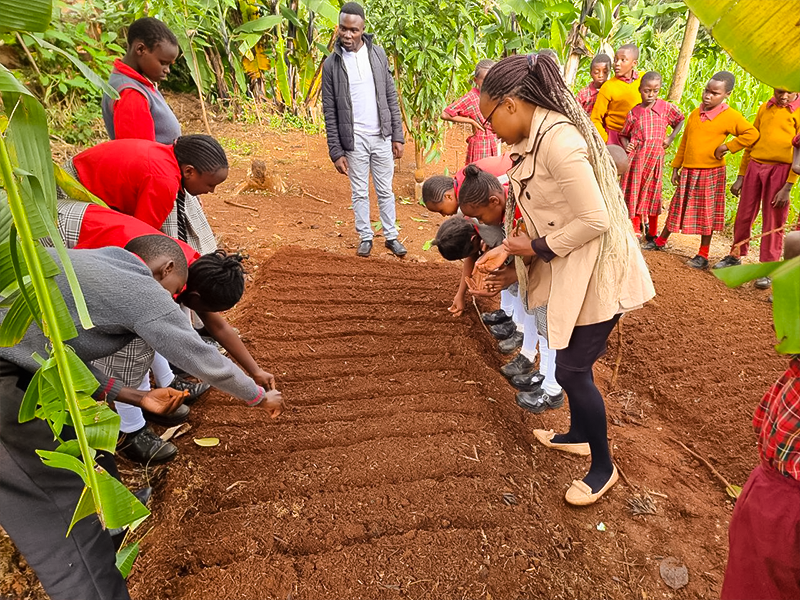
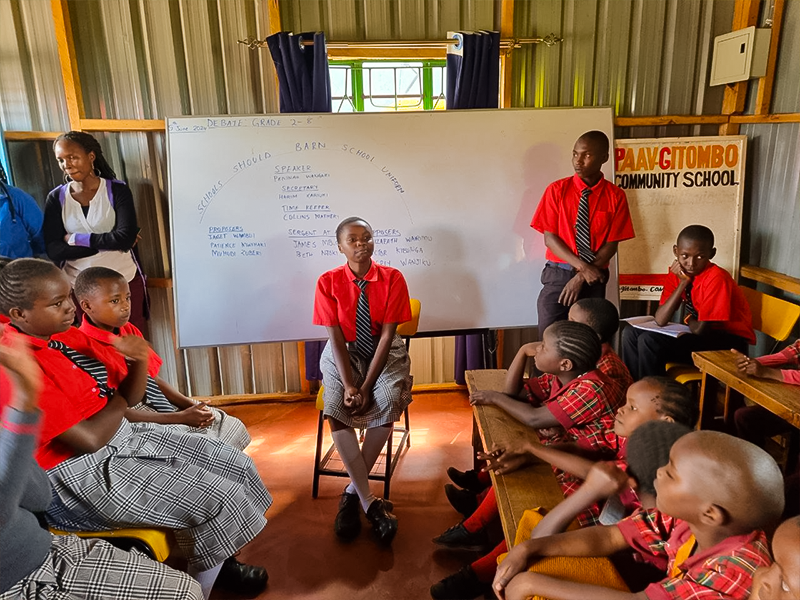
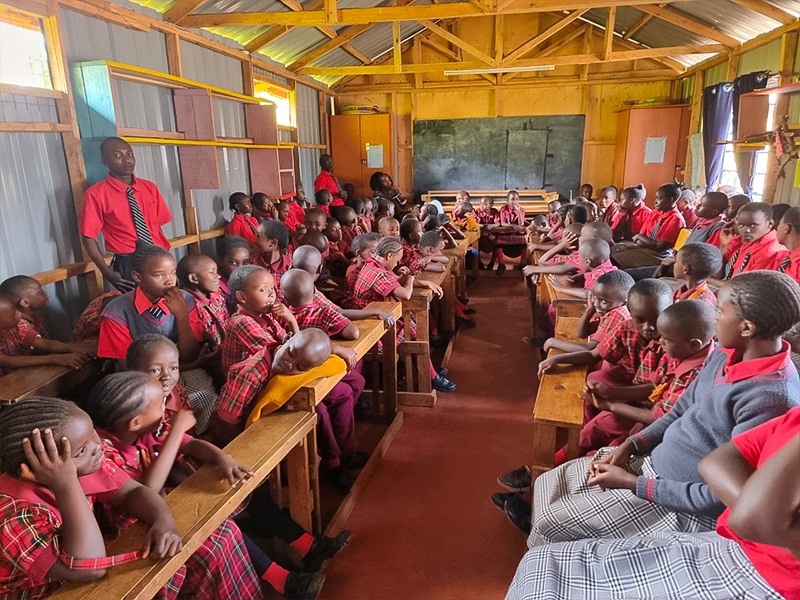
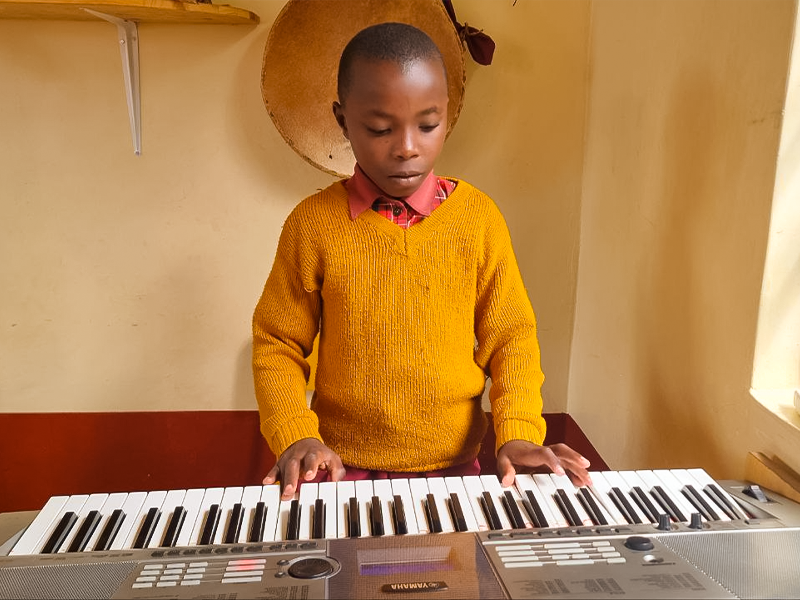
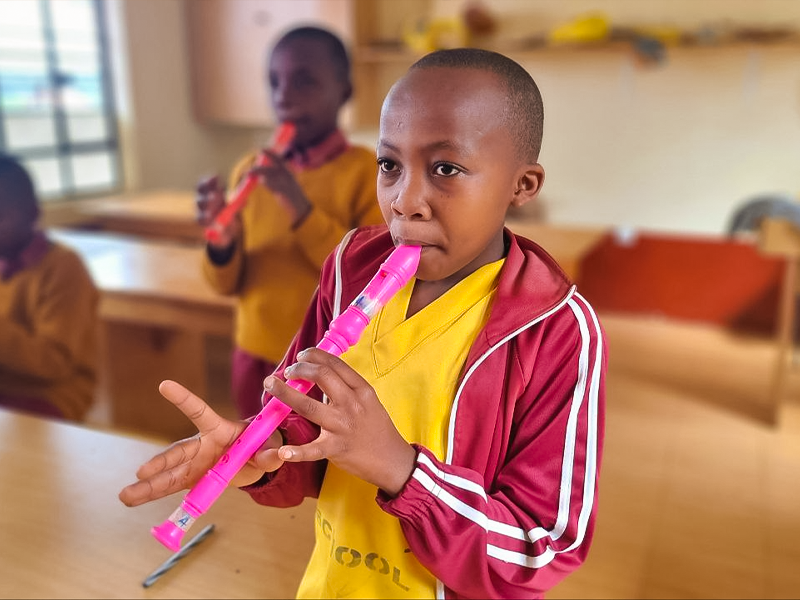
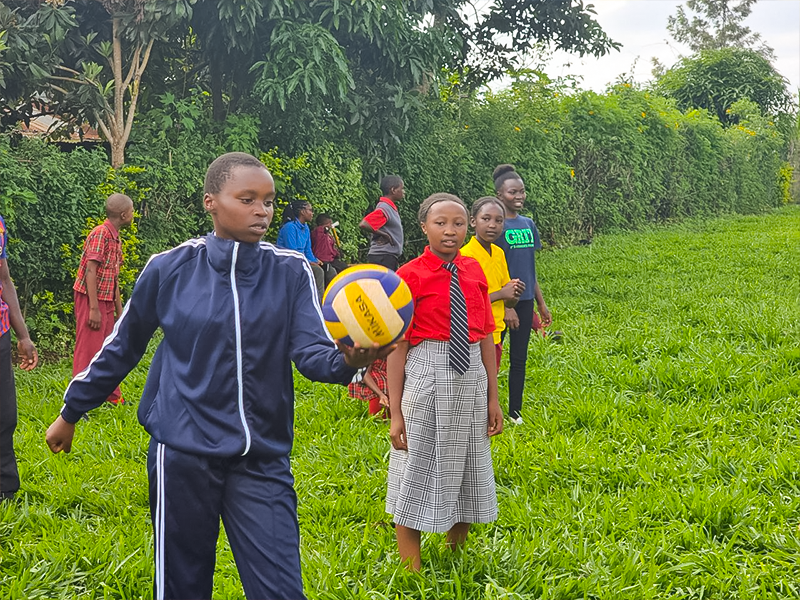
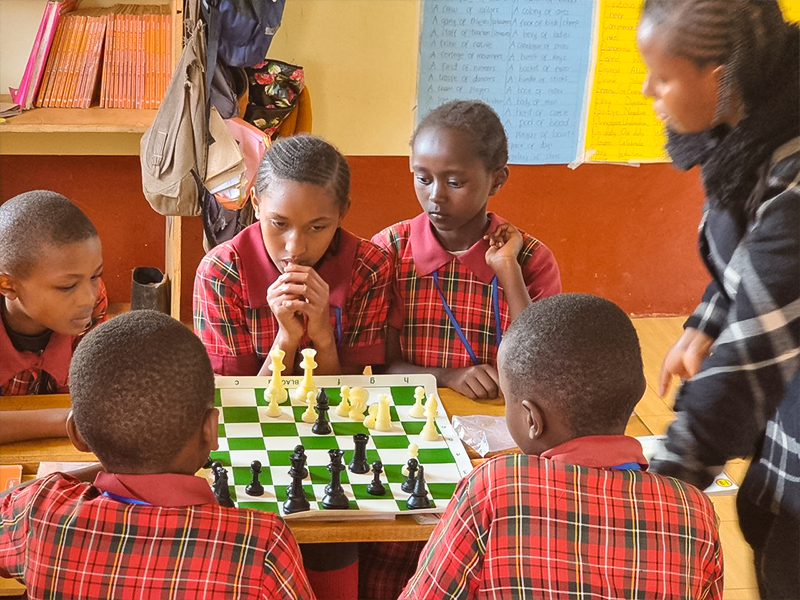
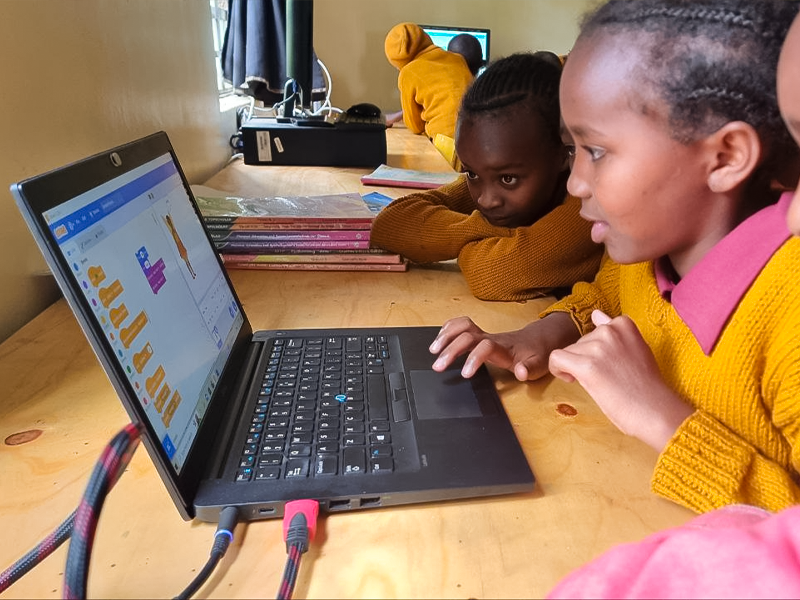
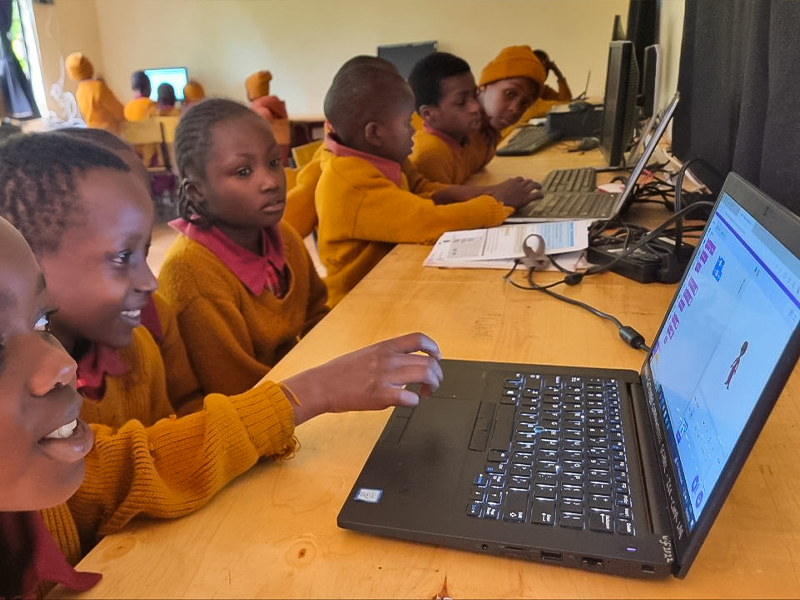
We currently have a science lab, computer room, an understocked library, and a music room.
All of our children have the opportunity to learn the Bible, practice music, Drama, and
engage in Indoor Board Games and Sports. Some of our children have been identified as being
very good at chess, playing piano, and playing the descant recorders. Over the weekends, we
provide Sunday School for the children, Bible Study for the youth, and parents.
Learning at the ECDE level
At PAAV Gitombo, we understand that through playing, children experiment with ideas, practice social skills, and make sense of the world. Our qualified and dedicated ECDE teachers deliberately design fun and engaging lessons to help our young children develop the necessary skills in their various learning areas.
The major learning activities at the ECDE level are:
Language and Literacy – These activities build foundational skills for reading, writing, and communication. The main activities include: Storytelling, singing songs, and letter recognition.
Mathematics (Numeracy skills) – These activities introduce basic math ideas to the children. This is done through: Counting, sorting and classifying, and measuring
Creative Arts and Expression – This area allows for self-expression and imagination through: Art (Painting, drawing, and modeling with clay), Music, dancing, and Pretend Play
Psychomotor Skills Development – Activities are designed to develop muscles. These include running, jumping, catching balls, etc.
Environmental Activities – These activities nurture curiosity and encourage children to observe and explore the world around them.
Learning at the Primary School level
Our primary school is divided into Lower and Upper Primary, each with different subjects taught. Learning at the primary level shifts from the informal, play-based methods of ECDE to a more structured, yet learner-centered, system. The core aim is to develop skills, knowledge, and attitudes that students can apply in real-life situations.
Lower Primary (Grades 1-3) Ages 6-9
The learning environment is designed to be a gentle transition from pre-primary, using guided play and hands-on activities. Our teachers ensure learning is practical and uses locally available materials. They encourage learners to discover concepts for themselves through exploration.
Learning Areas:
- English Language Activities
- Kiswahili Language Activities
- Mathematical Activities
- Environmental Activities
- Christian Religious Education (CRE)
- Creative Activities (incorporating music, art, and physical education)
Upper Primary (Grades 4-6, Ages 10-12)
We encourage our learners to think more critically, collaborate on projects, and begin using digital tools for research. The children are introduced to a wider range of subjects that build on the broad base of Lower Primary.
Learning Areas
- English
- Kiswahili
- Mathematics
- Science and Technology
- Social Studies
- Christian Religious Education (CRE)
- Agriculture & Nutrition
- Creative arts and sports
Assessment: Teachers administer school-based assessments. At the end of Grade 6, learners sit for the Kenya Primary School Education Assessment (KPSEA), which assesses their understanding of concepts taught in primary school.
Learning at the Junior School level (Ages 12-14, Grades 7-9)
At this level, we encourage our children to explore their talents and interests.
We ensure:
Learner-Centered Learning: Our teachers act as facilitators, guiding students through projects and research rather than just lecturing.
Competency-Based learning: We focus on developing skills like critical thinking, communication, creativity, and digital literacy.
Career Guidance: We emphasize helping learners identify their strengths and interests to make informed choices for Senior School.
Learning Areas:
We offer the following 9 subjects that are mandatory for all learners:
- English
- Kiswahili
- Mathematics
- Integrated Science
- Social Studies
- Pre-technical Studies
- Agriculture & Nutrition
- Christian Religious Education (CRE)
- Creative Arts and Sports
Assessments
Throughout Grades 7, 8, and 9, teachers conduct project-based and practical assessments to track the development of competencies. These school-based assessments form a significant part of the final score.
At the end of Grade 9, learners will undertake the Kenya Junior School Education Assessment (KJSEA) administered by the Kenya National Examinations Council (KNEC). This assessment is the main determinant of placement into one of the three pathways in Senior School:
- Arts and Sports Science
- Social Sciences
- Science, Technology, Engineering, and Mathematics (STEM).
- We offer faith-driven education -> change to we offer Christ-centered education
- About the founder -> remove the About more button in the section
- Include an extracurricular activities header before the section with Agriculture, debate, music, sports, and computer. -> move the entire section to the About Us page
About Gitombo Village
• Gitombo is a small village in Kiambu County, located about 40 km from Kenya’s capital, Nairobi. Home to roughly 1,500 people, the community largely depends on subsistence farming and casual labor for survival. Many families struggle to provide consistent meals, quality education, and opportunities for their children. PAAV Gitombo Community School was established as a response to this reality. By offering education, meals, and mentorship, the school brings hope and stability to families who would otherwise face limited opportunities. Beyond the classroom, our programs such as Sunday school, the Youth with a Difference program, and the Pillars ministry impact the entire community.
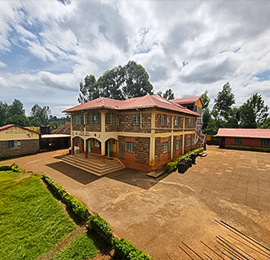
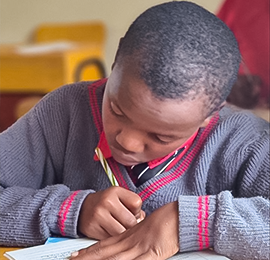
-
Gitombo People
-
Students
-
Teaching Staff
-
Years
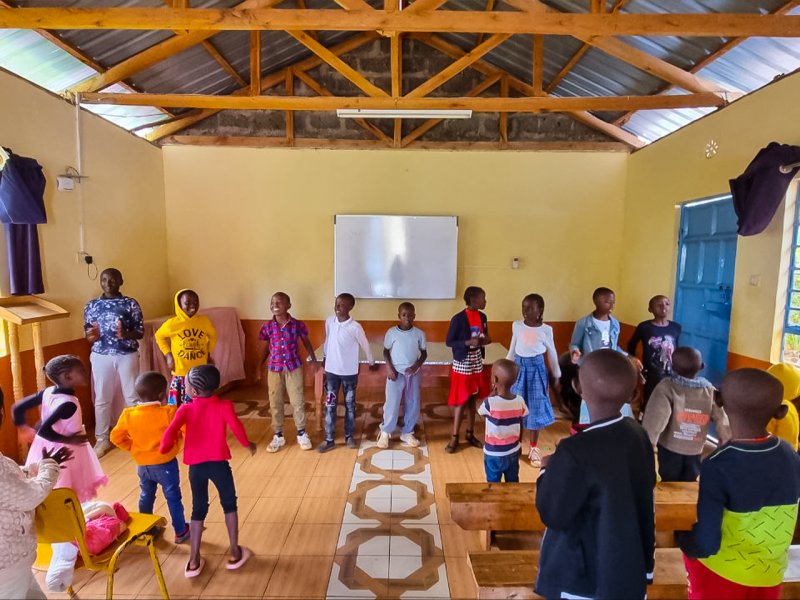
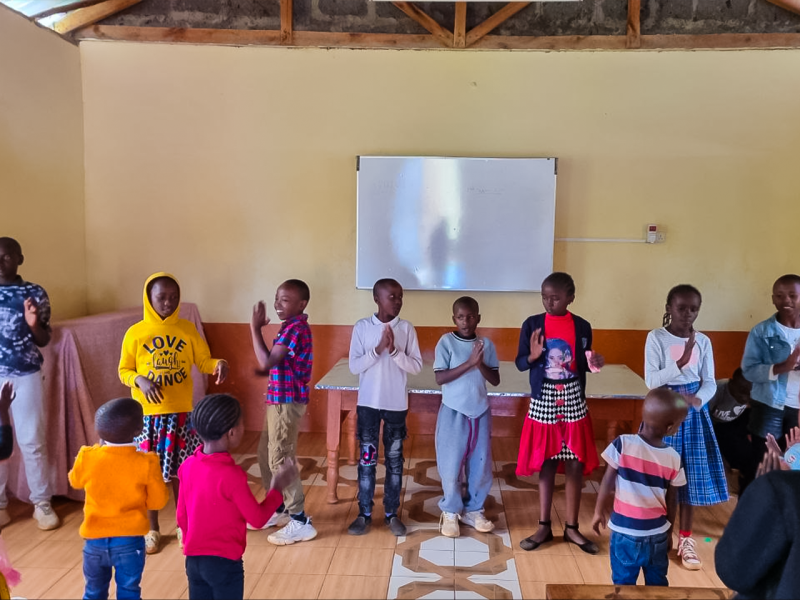
Ministry to the children: Sunday school
The school provides spiritual guidance for the children through the Sunday School and chapel program. Every Sunday, the teachers take turns to teach a chapter in the bible. The lessons are engaging and fun for the students. About 100 students attend Sunday school every week. The students who attend have been noted to have improved confidence and knowledge of the bible.


Ministry to the Staff
When hiring any staff member, whether as a teacher or in other roles, they may not necessarily know the Bible, even if they are a Christian. The staff have a weekly Bible study session on Wednesdays from 4 to 5 pm to learn more about the Bible while continuing their work teaching Sunday school.
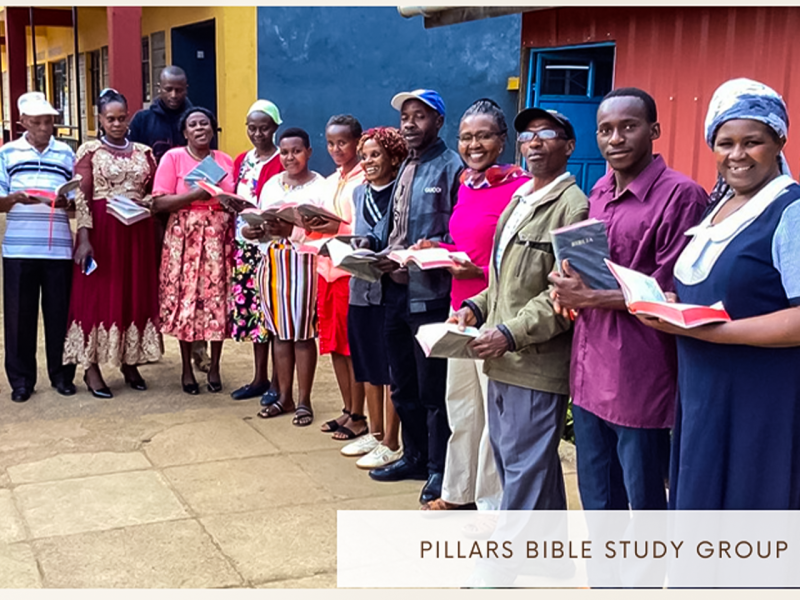
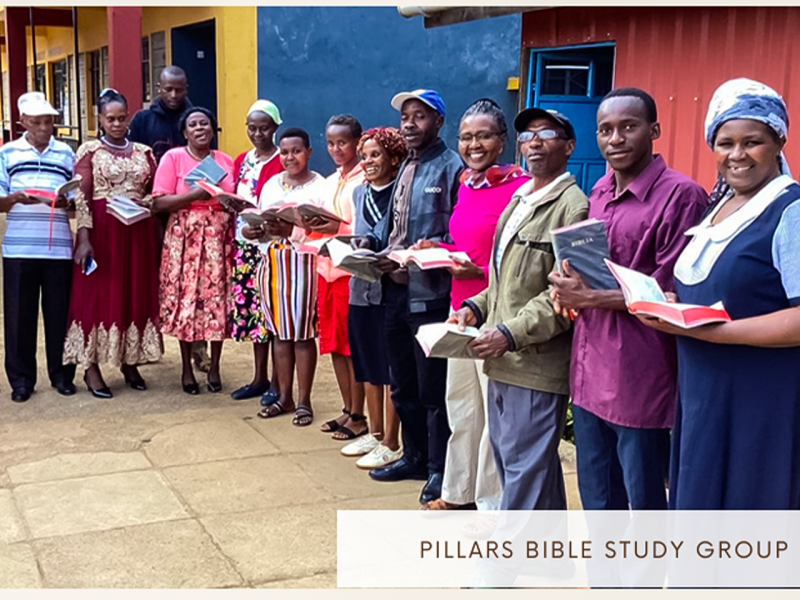
Ministry to the Parents: Pillars program
The pillars program is an empowerment initiative aimed at aiding parents and staff members at PAAV-Gitombo to start and grow small businesses. The pillars program takes a two-pronged approach:
- A business training: These classes are held every Saturday from 4-6 pm.
- A weekly bible study session. This takes place every Sunday from 4-6 pm.
Upon completion of the training, the pillar’s group members are issued a small loan to aid in starting a small business.
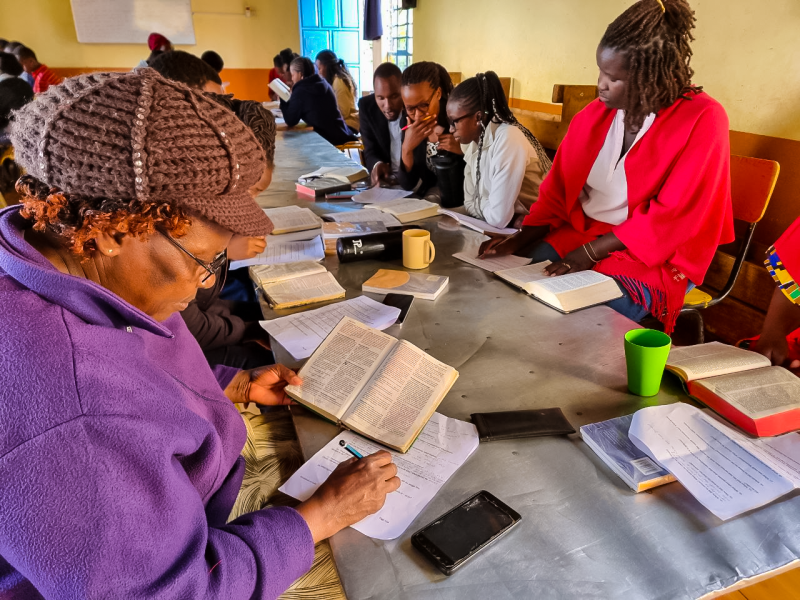
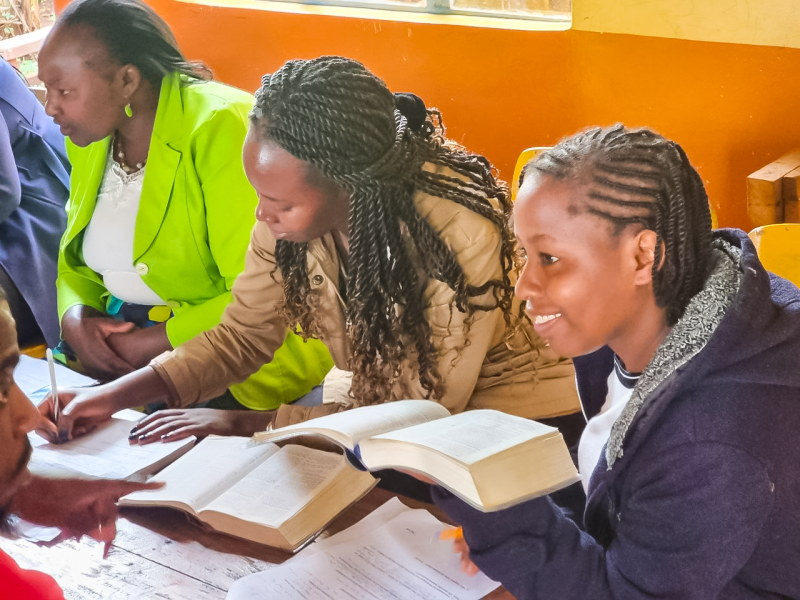
Ministry to the parents: Pillars program
The pillars program is an empowerment initiative aimed at aiding parents and staff members at PAAV-Gitombo to start and grow small businesses. The pillars program takes a two-pronged approach:
- A business training: These classes are held every Saturday from 4-6 pm.
- A weekly bible study session. This takes place every Sunday from 4-6 pm.
Upon completion of the training, the pillar’s group members are issued a small loan to aid in starting a small business.


Ministry to the children: Sunday school
The school provides spiritual guidance for the children through the Sunday School and chapel program. Every Sunday, the teachers take turns to teach a chapter in the bible. The lessons are engaging and fun for the students. About 100 students attend Sunday school every week. The students who attend have been noted to have improved confidence and knowledge of the bible.


Ministry to the Staff
When hiring any staff member, whether as a teacher or in other roles, they may not necessarily know the Bible, even if they are a Christian. The staff have a weekly Bible study session on Wednesdays from 4 to 5 pm to learn more about the Bible while continuing their work teaching Sunday school.


Ministry to the Parents: Pillars program
The pillars program is an empowerment initiative aimed at aiding parents and staff members at PAAV-Gitombo to start and grow small businesses. The pillars program takes a two-pronged approach:
- A business training: These classes are held every Saturday from 4-6 pm.
- A weekly bible study session. This takes place every Sunday from 4-6 pm.
Upon completion of the training, the pillar’s group members are issued a small loan to aid in starting a small business.


Ministry to the parents: Pillars program
The pillars program is an empowerment initiative aimed at aiding parents and staff members at PAAV-Gitombo to start and grow small businesses. The pillars program takes a two-pronged approach:
- A business training: These classes are held every Saturday from 4-6 pm.
- A weekly bible study session. This takes place every Sunday from 4-6 pm.
Upon completion of the training, the pillar’s group members are issued a small loan to aid in starting a small business.
Our Expert Team
Meet The Team Member














Video Here to Support
We Help Poor This Lifes Service
Lorem ipsum dolor sit amet, conse dtetur adipi sicing
elitare many variations.
